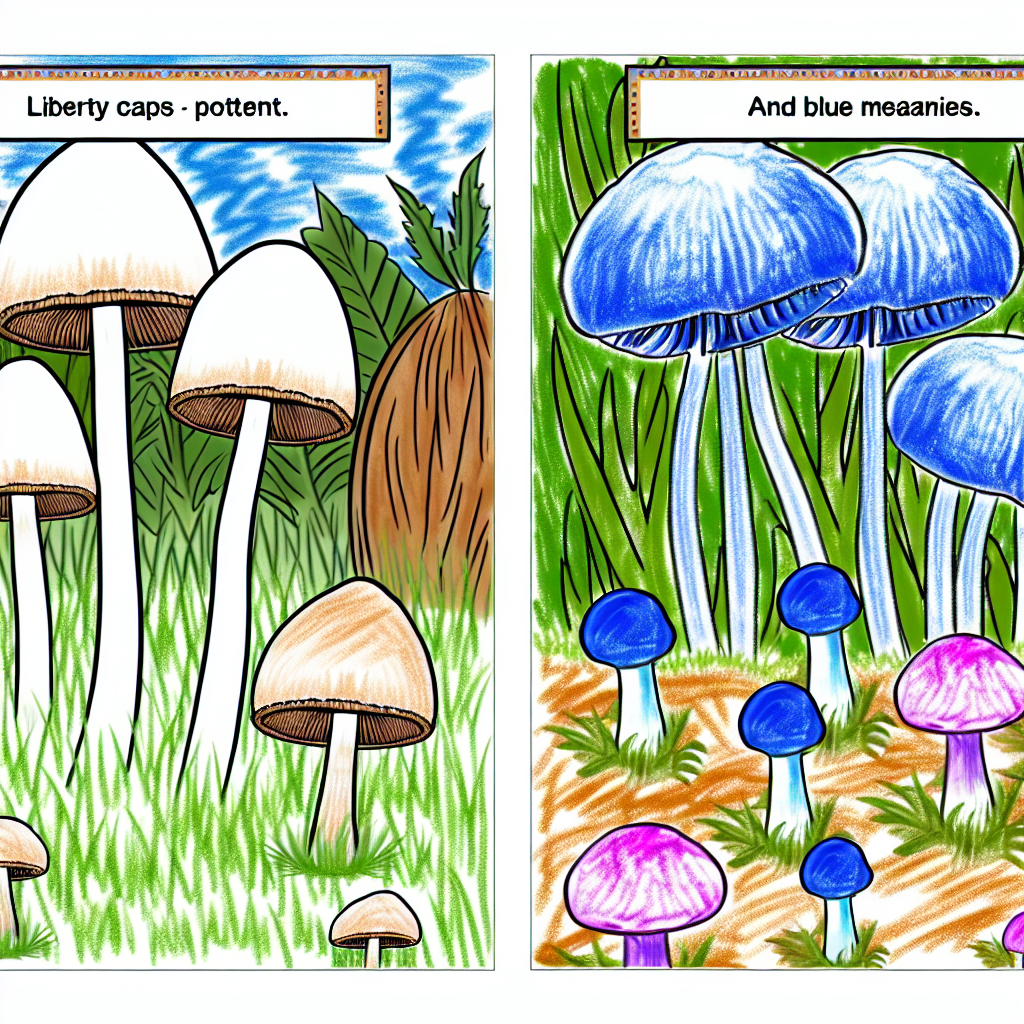Psilocybin and PTSD Treatment: Veteran Success Stories
Introduction
Post-Traumatic Stress Disorder (**PTSD**) is a debilitating mental health condition that affects millions of people globally, with military veterans being especially vulnerable. According to the U.S. Department of Veterans Affairs, approximately 11–20% of veterans who served in Operations Iraqi Freedom and Enduring Freedom suffer from **PTSD** in any given year. Traditional therapies, such as **cognitive-behavioral therapy** (CBT) and prescription medications like SSRIs, have shown limited success for many. Persistent symptoms such as flashbacks, anxiety, and emotional numbness continue to impact quality of life for these individuals.
In search of alternative solutions, researchers have turned their attention to **psychedelics**, particularly **psilocybin**, a naturally occurring compound found in “magic mushrooms.” Emerging evidence suggests psilocybin may help reset the brain’s **default mode network** (DMN), reduce excessive activity in fear-centered regions like the **amygdala**, and facilitate deep emotional breakthroughs.
For many veterans, **psilocybin-assisted therapy** represents a transformative option after years of ineffective treatment. Numerous ex-service members report profound personal change, reconnection with loved ones, and a path to emotional healing. As the stigma around psychedelics diminishes and legal reform accelerates, veteran experiences are becoming crucial to the push for broader policy changes and public acceptance.
This article explores their journeys, clinical data, and the growing scientific consensus that positions **psilocybin** as a promising treatment for post-traumatic stress.
Professional Insights and Medical Studies
A growing body of research validates the therapeutic potential of **psilocybin** for trauma-related conditions. Early investigations by respected institutions like Johns Hopkins University highlight the compound’s ability to alleviate **anxiety** and **depression**, conditions frequently entangled with **PTSD**. These results, while not PTSD-specific, set a precedent for further research into how psychedelics can influence **mood regulation** and psychological resilience.
A pivotal 2020 study in Frontiers in Psychiatry expanded this knowledge. It found that **psilocybin** facilitates emotional release, **ego dissolution**, and psychological detox—crucial mechanisms for trauma processing. By temporarily disabling habitual thought patterns rooted in fear and avoidance, individuals are often able to view their trauma from a safer, more objective perspective.
Further validation came from Compass Pathways, whose 2021 Phase II trial for treatment-resistant depression—a condition closely related to PTSD—demonstrated that just one dose of **psilocybin**, paired with guided psychotherapy, offered significant and lasting relief.
The Multidisciplinary Association for Psychedelic Studies (MAPS) has played a vital role in advancing **psychedelic research**, especially with MDMA, but the organization has acknowledged **psilocybin’s** growing therapeutic promise. Their advocacy contributed to the FDA granting psilocybin **Breakthrough Therapy** designation, fast-tracking additional studies and regulatory acceptance.
Veteran Success Stories and Real-Life Results
Ex-service members have not only embraced these therapies as participants but have also become leaders in the movement. One key example is the Heroic Hearts Project, a nonprofit founded by combat veteran Jesse Gould. This organization connects veterans with legal, supervised psychedelic retreats where they can access **psilocybin therapy** and other alternative treatments.
Veterans report that in a guided, supportive environment, psilocybin allows them to experience breakthrough moments: a reconnection with repressed emotions, a shift in identity narrative, or the ability to confront past trauma without overwhelming fear. For many, it feels like the first step toward reclaiming their lives. Some describe the experience as life-altering, helping them not just reduce their symptoms, but fundamentally realign with purpose, self-compassion, and emotional clarity.
These reports are corroborated by neuroimaging studies. Functional MRI scans show that psilocybin reduces reactivity in the **amygdala**, which plays a key role in fear response. This neural shift could explain why veterans feel less “hijacked” by intrusive memories after therapy. The balance of activity across various brain networks also increases, which promotes **neuroplasticity**—essential for psychological healing.
However, set and setting remain critical. For optimal results, individuals need a **safe environment**, the guidance of trained therapists, and structured follow-up sessions to integrate their experiences. Adverse outcomes—while rare—are more likely when these elements are ignored.
Conclusion
Veterans have emerged as some of the most powerful advocates for **psilocybin-assisted therapy**, offering real-world validation for what science is beginning to confirm. These courageous individuals are turning personal healing into policy action, challenging outdated norms and pushing for systems that support long-term health and reintegration.
As the list of successful outcomes grows—and institutions increasingly fund and publish high-quality data—the role of **psychedelic treatments for PTSD** seems destined to become not just accepted, but essential. For those suffering in silence, **psilocybin** may represent not a trip, but a way home.
References
- U.S. Department of Veterans Affairs: PTSD in Veterans
- Johns Hopkins Medicine: Psilocybin for Mood and Anxiety Disorders
- Frontiers in Psychiatry: Psychedelics for PTSD
- Compass Pathways Clinical Trial Results
- MAPS – Psychedelic Research
- Heroic Hearts Project
Concise Summary
Psilocybin, a compound from psychedelic mushrooms, is showing promise as an alternative treatment for PTSD, particularly in military veterans. Research from institutions like Johns Hopkins and Compass Pathways supports its ability to reduce fear, depression, and trauma-related symptoms. Organizations such as Heroic Hearts Project offer therapeutic access to veterans reporting life-changing outcomes. Neuroimaging and clinical studies highlight psilocybin’s potential to reduce hyperactivity in the amygdala and promote psychological healing. Safe environments and professional guidance are essential for effective treatment. As stigma fades and legal barriers fall, psilocybin therapy could transform how we treat trauma in veterans and beyond.

Dominic E. is a passionate filmmaker navigating the exciting intersection of art and science. By day, he delves into the complexities of the human body as a full-time medical writer, meticulously translating intricate medical concepts into accessible and engaging narratives. By night, he explores the boundless realm of cinematic storytelling, crafting narratives that evoke emotion and challenge perspectives. Film Student and Full-time Medical Writer for ContentVendor.com



